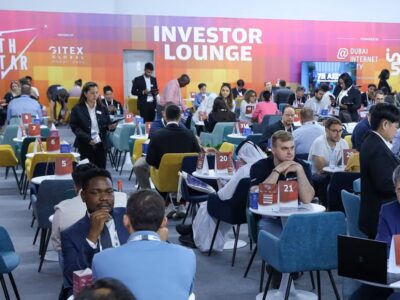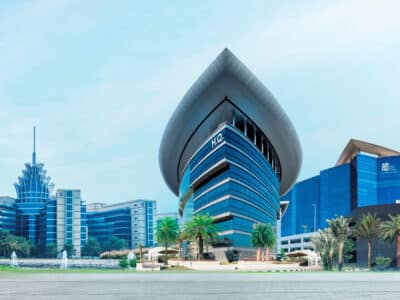The global food industry is precarious. Recent supply chain disruptions caused by COVID-19, the Suez Canal obstruction and the current war in Ukraine have emphasized the need to improve food supply throughout the world, especially in the GCC region.
The ongoing conflict in Ukraine, involving two of the biggest producers of wheat, fertilizers, and oilseeds, is destabilising supply chains and pushing food, energy, and fertilizer prices higher. Achieving food security has become more important than ever.
Food security challenges in the GCC
While the GCC is considered food-secure, the region should still address challenges related to food security such as regional instability, global conflicts, water scarcity and climate change.
GCC countries have been able to use their substantial economic resources to address the food security issue, mainly through food imports. In the future, the main food security challenge for the GCC will not likely be food price inflation, but rather a man-made or inevitable disruption that could fully or partially block access of one or more nations to food imports.
The GCC-wide food security challenge lies in maximising nutrition per kilogram of food production, with as little water input as possible. The UAE and Kuwait have the lowest renewable water resources and lowest adaptive capacity scores. Oman has the highest amount of renewable water resources per capita, due to fresh groundwater stored in aquifers and natural springs. All existing and future challenges may be tackled collectively with the help of technology.
Technology to the rescue
Technology plays a crucial role in enabling nations to pivot when times get tough. Big Data analytics, AI and real-time monitoring are useful tools to help tackle rising food security issues. AI and machine learning allow countries and companies to develop food management solutions aimed at optimizing manufacturing processes and supply chain operations.
For instance, our Global FoodTech dashboard is a simple reflection of Deep Knowledge Analytics’ AI and data science capabilities, presenting a collection of advanced analytics on the FoodTech sector, an overview of technologies used, and a business case study that gives insights into the implementations of various FoodTech solutions. The goal is to provide a comprehensive understanding of the current state of FoodTech, as well as its potential for the future.
A FoodTech accelerator can play a significant role in stimulating and scaling food production technologies and innovations in the GCC. To succeed on its food security journey, the GCC needs to propel the creation of more FoodTech solutions driven by new start-ups and existing companies, providing access to funding, distribution support and consulting services, to name a few.
Elsewhere where food accelerators are supporting the agriculture sector, countries such as Singapore and the Netherlands have been enhancing their AgriTech development capacities.
The UAE experience
The UAE has made great progress on this front. The nation strives to become a global major player in production and distribution of fertilisers. For instance, the Abu Dhabi National Oil Company (ADNOC) has entered a joint venture with Dutch producer of fertilisers OCI NV to form a new global fertiliser giant, ‘Fertiglobe’, which by the end of 2021 became the largest nitrogen fertiliser platform in the world.
To alleviate the region’s heavy reliance on food imports, a UAE-based AgriTech company called Dake Rechsand believes its ‘magic sand’ technology can help local farmers turn desert into arable land to grow a variety of vegetables and fruits, and even crops. The company has been able to grow 28 types of fruit trees, which have yet to be grown on a commercial scale.
Boosting seed funding
A FoodTech accelerator can help increase seed funding needed for AgriTech R&D, which is particularly dependent on specific resources such as large spaces known as test farms, and other infrastructure such as labs and greenhouses.
It is crucial to invest in R&D aimed at identifying key staple foods that can grow and be produced using modern farming techniques in the arid climate of the GCC. Diversification of the food basket will reduce food dependency and strengthen internal food security within the region.
Before the pandemic, disrupted supply chains and acute hunger were on the rise due to conflict, climate change, socio-economic conditions and natural hazards. The current war in Ukraine adds risk to global food security challenges, with prices rising and pushing millions into elevated levels of food insecurity.
The food situation will be riskier and more uncertain elsewhere to the vulnerable communities across the wider MENA region. Yemen, Egypt, Lebanon and Syria have been feeling the disruptive effects of the pandemic before the war.
With the right enabling environment led by public-private partnership, and the ensuing technological innovation, the GCC stands a good chance to become self-sufficient in food and sustenance.
Alex Cresniov, Director of Deep Knowledge Analytics








